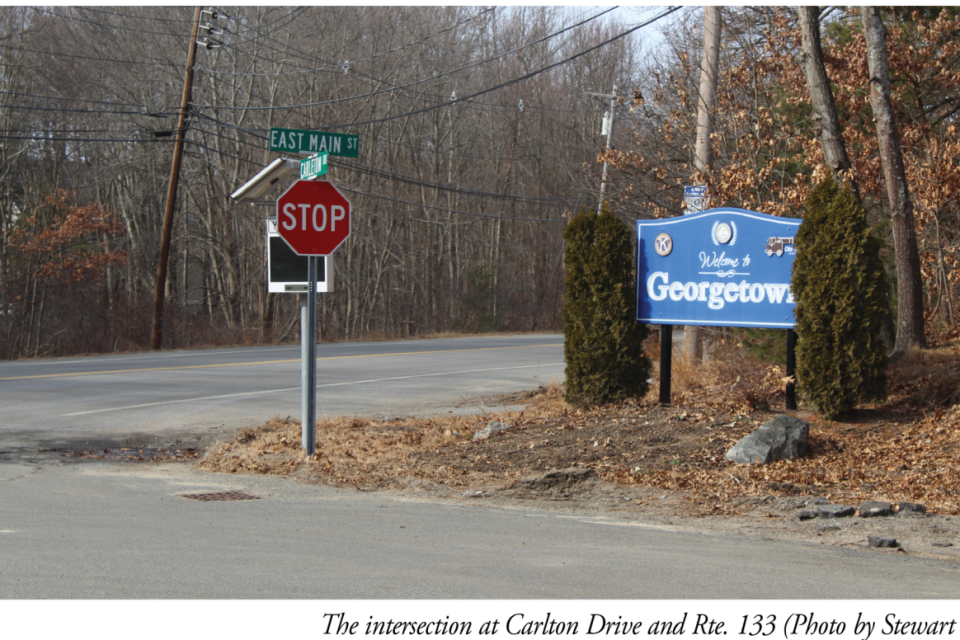GEORGETOWN – The multi-year fight over a large trash transfer station here may be coming to an end. The Planning Board voted last week five to zero to approve a revised set of conditions for the station that had been negotiated between the board and Mello.
The prospect that the station could be built soon seems to have rekindled the opposition of some residents to the station that would start with 250 tons per day and grow to 500 tons per day in several years.
Planning Board vice chair Bob Watt proposed to postpone the vote until the board’s next meeting to give members time to review the negotiated changes, but dropped the effort when chair Harry LaCortiglia pointed out the board has two weeks to review the modified order and sign it – or not.
LaCortiglia said he would understand if some board members did not attach their names to this controversial decision.
“The construction of the Mello 500-ton transfer station and reconstruction of Carleton drive is set to begin in the coming months,” an opponent Michael Birmingham wrote to other opponents.
In the negotiations, both the town and Mello won some concessions. The town won a fight over whether Mello can be issued an occupancy permit for the station if his company has not reimbursed the town for the cost of rebuilding the narrow, deteriorating Carlton Drive. Mello, who has pledged to pay for the road work, agreed the building inspector can stop operation of the transfer station if the town has not been fully reimbursed.
In the revised conditions, Mello does not have to hire a police detail for four months to manage traffic from additional trucks turning in and out of the intersection at Carlton Drive. The requirement was reduced to 60 days, 30 consecutive days during the first month of operations, followed by four, five-day weeks if Police Chief David Sedgewick says it is needed.
In the past when he was chief, Donald Cudmore expressed concern that the department might not have enough officers to staff the detail at Carlton Drive.
“Given I only have 13 full-time officers (2 of which are reserve officers) this just would not be feasible given the size of the department as well as the interest needed to participate. Given the climate in policing, I would defer such enforcement action to the State Police as necessary. It is also cost prohibitive in my opinion at this time,” Cudmore wrote.
The State Police offers a limited training course for commercial truck enforcement. “A team of four officers would be needed to create an Enforcement Team for commercial truck traffic,” Cudmore wrote.
The training at the New Braintree State Police Academy is a two-week basic class and a specialized two-week training module. A 32-hour observation time with an active team is then the final requisite to become certified, Cudmore wrote.
The challenge is the narrow entrance to Carlton Drive for large commercial trucks turning on and off of Rte. 133. Birmingham pointed out that the Board of Health had requested that the entrance to Carlton Drive be widen, if feasible.
The turn from State Rte. 133 “has been documented as unmanageable for large trucks with vehicles in the exiting lane,” Birmingham wrote. Widening the intersection “is not legally feasible since residential property abuts the west side and Rowley state forest abuts the east side.”
The town, he wrote, may have to take some land from the state forest.
Birmingham urged Georgetown’s state legislators to “closely monitor” the road rebuilding and construction of the transfer station.
The Conservation Commission, which was ordered by the state land court to approve reasonable conditions for the station, have its hands tied, said vice chair Rachel Bancroft.
The Town Administrator Orlando Pacheco has told the SelectBoard he is preparing a host agreement for the station, which would require Mello to pay the town a fee for operation of the station.




